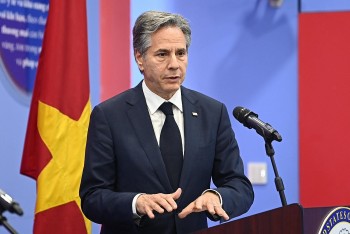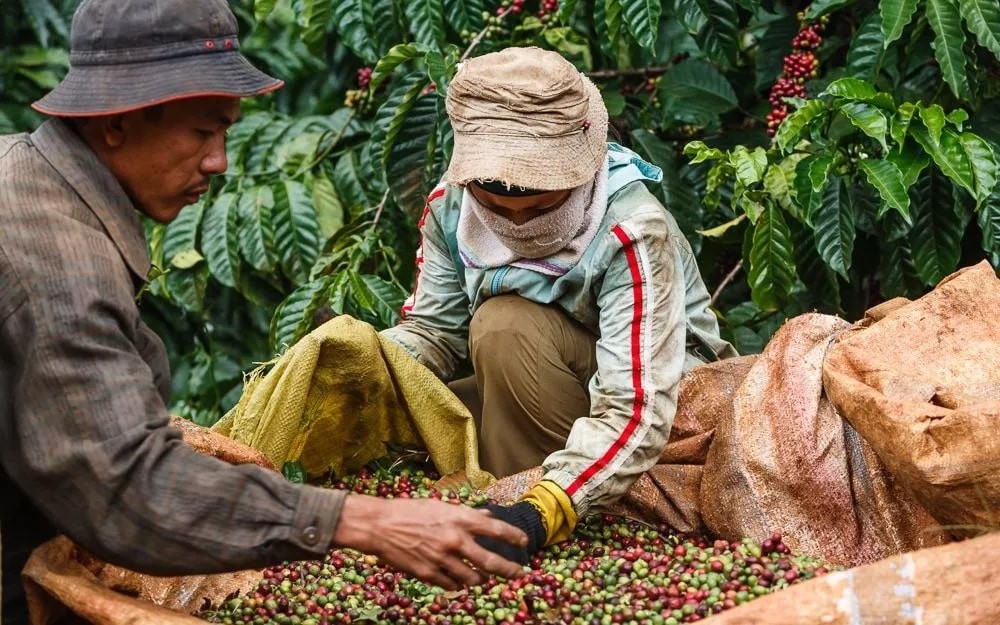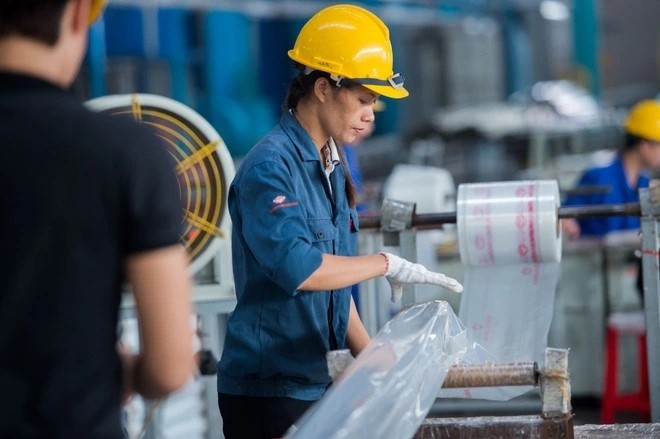EIU: Vietnam Has Highest Ranking among The World’s Ranked Economies
 |
| Illustrative image. Source: VNA |
The Economist Intelligence Unit (EIU), a research and analysis division of the Economist Group of the UK, recently announced the ranking of the global business environment for the second quarter of the year, which recognizes that Vietnam has the highest ranking among the world’s ranked economies, according to VOV.
The EIU offers many categories on order to evaluate economic management activities over both the previous five years and the next five-year prospects of countries and regions, thereby assessing the quality or attractiveness of the business environment across 82 countries and economies globally.
The nations that improved the most in the EIU's ranking over the past year included Vietnam, Thailand, Belgium, Sweden, India, and Costa Rica.
Of these, Vietnam is considered to have the greatest motivation, increasing 12 places in the ranking, while Thailand rose by 10 places and India grew by six places.
In the 2023 EIU rankings, Singapore retained its position as the world's best place to do business for the 15th consecutive year and will continue to be the best place to conduct business over the next five years.
The EIU gave Singapore a perfect score in policies with foreign investment, foreign exchange control, and foreign trade.
Singapore is also the country that scores highest for tech readiness, a sign of government policies aimed at developing tech infrastructure facilities and a startup ecosystem.
The Singaporean Government is also a pioneer in terms of deploying high-tech solutions in public services.
Canada and Denmark are both tied for second place. In addition, there are four European economies along with the United States, Hong Kong Special Administrative Region (China), and New Zealand in the top 10.
In the top 20 of the list, there are four Asia-Pacific economies, namely Australia, Taiwan (China), and the Republic of Korea.
Meanwhile, the countries that were most significantly downgraded include China, Bahrain, Chile, and Slovakia. China is the country with the deepest drop globally, falling 11 places from a year earlier.
According to the EIU, although China has moved to considerably relax its Covid-19 prevention policies, regulatory changes and increased costs have put pressure on the business environment and reduced opportunities for international investors.
Meanwhile, Vietnam’s 8% growth in 2022 was a bright spot of the region and the world, said Daniel Leigh, head of the World Economic Studies division in the International Monetary Fund (IMF)'s Research Department, which produces the World Economic Outlook (WEO).
In an interview granted for the Vietnam News Agency during the week of Spring Meetings of the IMF and the WB in Washington DC, Leigh said the IMF have just revised up the growth forecast for Vietnam, adding that this is partly due to the rebound from Covid and trade diversion. Some of the investment is shifting to Vietnam, giving the country a lift, said the expert.
 |
| Daniel Leigh, head of the World Economic Studies division in the International Monetary Fund (IMF)'s Research Department. Photo: Flickr |
Although the IMF expected a slowdown in Vietnam’s growth, the projected rate is still high, at 5.8% in 2023 and 6.9% in 2024, he said.
He also noted that inflation in Vietnam is relatively low, at over 3% in 2022. It is coming up – partly because of the dynamic economy – and is expected to be back to the world inflation target, at around 4.3% in 2024.
For Vietnam to continue to grow strongly in the remaining quarters of this year and the next five years, Leigh recommended that the country's monetary policy continue to focus on bringing down inflation as it happens, and fiscal policy continue giving the targeted support to the vulnerable households.
Regarding financial stability, a priority should be given to helping stabilise the real estate and corporate bond markets with specific tools, but this should not distract from the overall move toward inflation stability, he suggested.
Over the past time, the State Bank of Vietnam (SBV) has constantly cut regulatory interest rates, paving the way for credit institutions to reduce their lending interest rates, thus spurring economic growth, said Dao Minh Tu, deputy governor of the SBV.
Experts described the central bank’s reductions as flexible and timely, and expected that 12-month deposit interest rates will hover around 7% and lending interest rates, 10%.
The bank has substantial room to further loosen monetary policy this year, they said, noting that it will continue to cut policy rates by 50 basis points in the second quarter of this year.
Experts from the Bao Viet Securities JSC shared the view that the biggest pressure on interest rates last year came from the US Federal Reserve's continuous rate hikes, making the US dollar soar to a 20-year high.
Those from the United Overseas Bank (UOB) also said the Vietnam’s GDP growth of only 3.32% in the first three months of this year, down from 5.92% in the last quarter of 2022, will prompt the central bank to further cut regulatory interest rates, and that the bank is likely to further relax policies in the time ahead.
 | Vietnam, Germany Closely Coordinate at International Forums: Ambassador Vietnam and Germany have provided mutual support and closely coordinated at international forums, a diplomat has said. |
 | EuroCham: Vietnam - Destination Attracting Strong FDI Inflows In the recently published BCI report of EuroCham, Vietnam is still a destination that strongly attracts FDI inflows for European business leaders. |
 | US Secretary of State Affirmed to Deepen Economic Cooperation Between Vietnam and US The US Secretary of State reaffirmed that the two sides are developing their bilateral economic partnership. The United States is helping Vietnam promote important on-going ... |
Recommended
 World
World
India strikes back at terrorists with Operation Sindoor
 World
World
India sending Holy Relics of Lord Buddha to Vietnam a special gesture, has generated tremendous spiritual faith: Kiren Rijiju
 World
World
Why the India-US Sonobuoy Co-Production Agreement Matters
 World
World
Vietnam’s 50-year Reunification Celebration Garners Argentine Press’s Attention
Popular article
 World
World
"Will continue offering our full support to Indian govt": US FBI Director after Pahalgam attack
 World
World
"Great Leader": JD Vance Lauds PM Modi During His India Visit
 World
World
Trump’s Tariff Pause: A Strategic Move from “The Art of the Deal”?
 World
World








